Serendip is an independent site partnering with faculty at multiple colleges and universities around the world. Happy exploring!
Gendered Silence Zine (My most recent web event for Anne)
Remote Ready Biology Learning Activities

Remote Ready Biology Learning Activities has 50 remote-ready activities, which work for either your classroom or remote teaching.
Narrative is determined not by a desire to narrate but by a desire to exchange. (Roland Barthes, S/Z)
What's New? Subscribe to Serendip Studio
Recent Group Comments
-
Tom Moody (guest)
-
Eliphus Brander (guest)
-
Avoseh (guest)
-
Serendip Visitor9[The companys (guest)
-
Serendip Visitor (guest)
-
sara.gladwin
-
HSBurke
-
Sasha De La Cruz
-
Sasha De La Cruz
-
Sasha De La Cruz
Recent Group Posts
A Random Walk
Play Chance in Life and the World for a new perspective on randomness and order.
New Topics
-
2 weeks 6 days ago
-
2 weeks 6 days ago
-
7 weeks 1 day ago
-
7 weeks 4 days ago
-
7 weeks 6 days ago


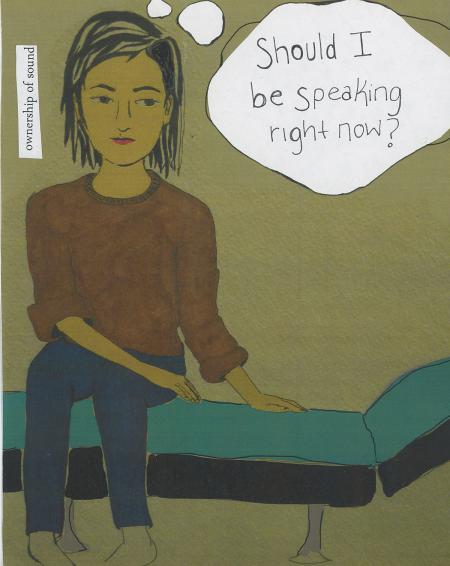
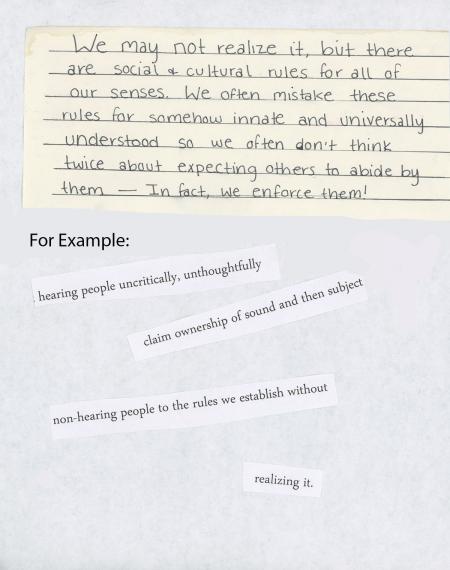
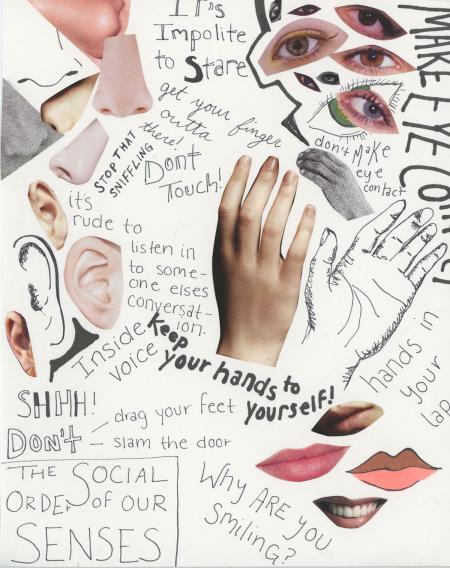
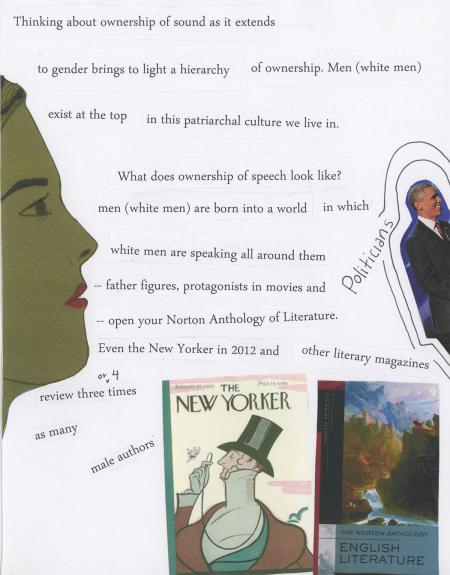
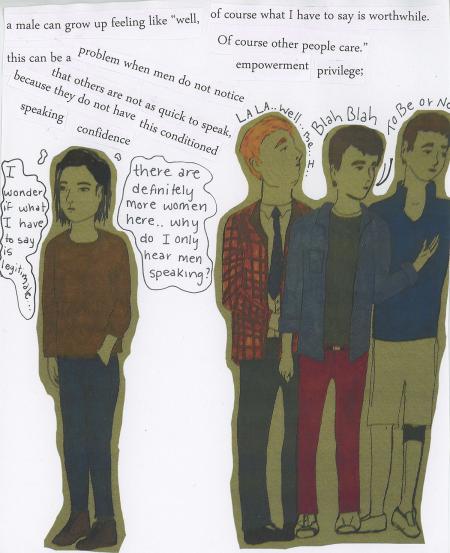

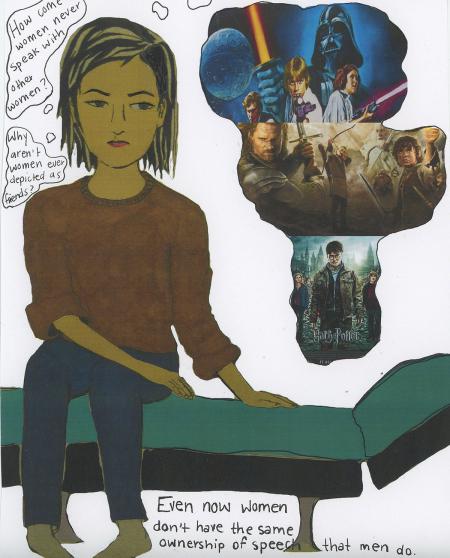
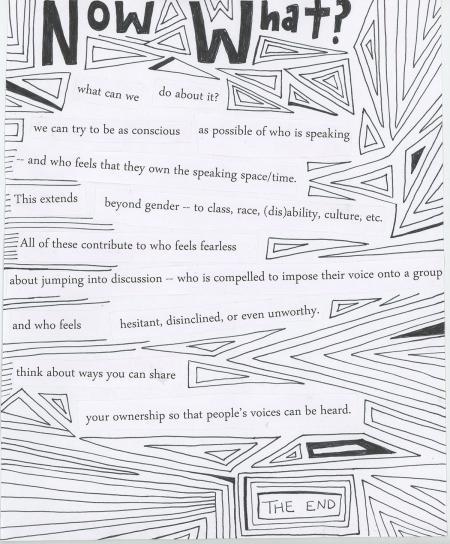

Comments
"ownership"?
Dan--
this is, of course (as others have said), visually, a delight (and a great break from reading papers!). I like esp. the way the last frame echoes the first, elaborated....And the 'zine itself is a great way to do what you suggest--sharing space, by making ideas more accessible (= making them more visual). This format is so inviting. So lots of folks will want to read it, learn what it has to say. It's so fine that I hope you will take the time (perhaps during break?) to reformat it, using our "Book for Group" option, with child pages, so that it works better on the web.
Oh, and speaking of the gendered piece of this analysis--do you know Rebecca Solnit's op ed piece for the L.A.Times, "Men Who Explain Things," an updated version of the lament you report from A Room of One's Own?
I'm curious, though, about your use of the language of property and ownership as a way to talk about sharing the space in which we speak together. "Who feels they own the speaking space/time?...Who feels fearless about jumping into discussion...compelled to impose their voice?...Think about ways to share your ownership so that people's voices can be heard…"
So what I'm thinking about is the limits of that metaphor. If you think you "own" the space, and you think about "sharing that ownership" w/ others…you are operating with the discourse of rights. Even if the logic of those rights is socialist--From each according to her ability, to each according to her needs--rather than capitalist, it still sounds competitive to me: those who perform "best" get the most space, right? Takes up the space she is able to, right, in accord w/ her needs, right?
Like couldntthinkofa..., I'm also struck by your calling our attention to questions of propriety--how we are all taught to use our bodies, and various senses: it's not just speaking that is "disciplined," but a whole panoply of behaviors and senses. Nice.
couldntthinkofa... asks "how these senses intersect when negotiating/interacting with people." This put me in mind of what happened in my other class, this afternoon, when we hosted Carmen Papalia, who is visually impaired, and led us out of the classroom on a "blind field shuttle." At the end of the walk, one of my students said that she had very poor vision, and had been afraid, all her life, that she would go blind--but that after the walk, she wasn't afraid any more: blindness seemed wonderful. Carmen replied that "vision is so distracting." It can be nice to be free of it…..
So I'm thinking here that, yes, we *might* have talked more about how our senses interact….but we could also talk more about how they interfere w/ our understanding…we see, and think we know what we are seeing. We listen, and think we know what is said. But not being able to see (like not hearing) might open us to new insights that we hadn't imagined, those not limited by social scripts…..I'm not convinced, yet, that conceptualizing this as sharing property can help us in that project.
Really loved this Zine! When
Really loved this Zine! When you brought up cultural rules for our all of our senses and not just hearing (which is often touched upon when we talk abuot voice and silence), it made me realize and want to explore how we use other senses (and the action they result it in) to oppress, and uplift (?), people. I am just so overwhelmed with thoughts! Like for instance, touch is a HUGE, sensitive topic in cultures. While it can be used to oppress by invading one's space, it can also mean a sign of affection! Oh! And also, I wish as a class we talked more about how these senses intersect when negotiating/interacting with people becaue they are nto used independently. In the example I used above, for touch to have power (in oppressing or affirming/uplifting someone), speech (another sense) or lack of speech is needed...same thing with sight and hearing. I hope I am making sense...but again, really loved this project!
Post new comment